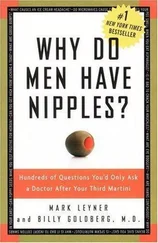In 1948 Marshall was worried about steel. But the dominant industrial power of our time is government. And it is because of the government monopoly that “the fortunes of the people” are dependent on “the whim or caprice” (not to mention “the emotional stability”) of a small number of all too like-minded individuals.
You can see where power lies in the very landscape: go to a steel town six decades after Marshall’s warning. The burg’s shot to hell. The handsome Victorian homes on the tree-lined avenues are worn and crumbling, with cracked clapboards and sagging porches, and cheaply partitioned into low-rent apartments. The railroad halts that sent the products of American industry across the nation and around the world are dead, their depots converted into laundromats and pizza joints or, worse, “community centers,” with the track removed and its weed-strewn path redesignated as a “heritage trail.” Where do wealth and power gravitate today? In 2009 Reuters reported:
Washington, D.C., has become the favorite area for wealthy young adults, with the nation’s highest percentage of 25-34 year-olds making more than $100,000 a year. 7
You don’t say! Now I wonder why that would be. Of the fifty counties with the biggest percentage of young high earners, sixteen were in the D.C. area.
Of the top ten, only two were not near either Washington or a state capital. 8
Reuters filed this revealing analysis in its “lifestyle” section. Which makes sense. The easiest way to a “lifestyle” is a government job. The following year, another survey (from Newsweek ) found that seven of the ten wealthiest counties in the United States were in the Washington commuter belt. 9
What matters in the America of the twenty-first century is proximity not to industry or to wealth creation but to government.
As George Harrison warned, “the government’s monopolizing”: it has a monopoly of law, of licensing, of regulation, and when it abuses that monopoly then eventually you can’t move without encountering government at every turn. Even before the Obama spendaholics got to work supersizing the state, all levels of government, federal to local, were already sucking up over 40 cents of every dollar American workers generate. 10(European nations were able to go beyond even that dismal figure only because the United States has relieved them of the responsibility for their own defense.) The assumed rationale for an ever more intrusive superstate is that, thanks to technology and globalization, the world is far more complex and interconnected than in the days when hardscrabble farmers in New England townships could be trusted to run their own affairs. There is little objective evidence to support this argument, but it conveniently bolsters the political class’s belief in its own indispensability. Willie Whitelaw, the genial old buffer who served as Margaret Thatcher’s deputy for many years, once accused the Labour Party of going around Britain stirring up apathy. Viscount Whitelaw’s apparent paradox is, in fact, a shrewd political insight, and all the sharper for being accidental. Big Government depends on going around the country stirring up apathy—creating the sense that problems are so big, so complex, so intractable that even attempting to think about them for yourself gives you such a splitting headache it’s easier to shrug and accept as given the proposition that only government can deal with them.
Take health care. Through all the interminable health-care “debates” of Obama’s first year, did you read any of the proposed plans? Of course not.
They’re huge and turgid and indigestible. Unless you’re a health-care lobbyist, a health-care think-tanker, a health-care correspondent, or some other fellow who’s paid directly or indirectly to plough through this stuff, why bother? None of the senators whose names are on the bills ever read ’em; why should you?
And you can understand why they drag on a bit. If you attempt to devise a health-care “plan” for over 300 million people, it’s bound to get a bit complicated. But a health-care plan for you, Mabel Scroggins of 27 Elm Street, didn’t used to be that complicated, did it? Let’s say you carelessly drop the ObamaCare bill on your foot and it breaks your toe. In the old days, you’d go to your doctor (or, indeed, have him come to you—that’s how insane it was back then), he’d patch you up, and you’d write him a check. That’s the way it was in most of the developed world within living memory.
When did it get too complicated to leave to individuals? “Health” is potentially a big-ticket item, but so’s a house and a car, and most folks manage to handle those without a Government Accommodation Plan or a Government Motor Vehicles System—or, at any rate, they did in pre-bailout America.
Ah, but government health care is not about health care, it’s about government. That’s why the Democrats spent the first year of a brutal recession trying to ram ObamaCare down the throats of a nation that didn’t want it. Because the governmentalization of health care is the fastest way to a permanent left-of-center political culture. It redefines the relationship between the citizen and the state in fundamental ways that make small government all but impossible ever again. In most of the rest of the western world, it’s led to a kind of two-party one-party state: right-of-center parties will once in a while be in office, but never in power, merely presiding over vast left-wing bureaucracies that cruise on regardless. All such “technocratic” societies slide left, into statism and stasis.
Many Americans are happy with the government monopoly. The monarchical urge persists even in a two-and-a-third-century-old republic.
So, when the distant Sovereign from Barackingham Palace graciously confers an audience on his unworthy subjects, they are eager to petition him to make all the bad stuff go away. “I have an urgent need,” one lady beseeched King Barack at a “town hall meeting” in Fort Myers early in 2009. “We need a home, our own kitchen, our own bathroom.” 11
He took her name—Henrietta Hughes—and ordered his staff to meet with her. Hopefully, he didn’t insult her by dispatching some no-name deputy assistant secretary of whatever instead of flying in one of the big-time tax-avoiding cabinet honchos to nationalize a Florida bank and convert one of its branches into a desirable family residence, with a swing set hanging where the drive-thru ATM used to be. The audience roared their gratitude. “Yes!” they yelped, and “Amen!” and even “Gracious God, thank you so much!”
As Bing Crosby said to Bob Hope in The Road to Utopia , “Leave your name with the girl, and we may get to you for some crowd noises.” That’s the citizen’s role on America’s road to Utopia: Leave your name with the girl and, after the background check, you may qualify for the crowd scenes.
Early in his term, President Obama called in some fellow smarties to test out some slogans. FDR had a “New Deal,” so Obama thought he’d wrap up his domestic innovations under the umbrella title of “New Foundation.”
The historian Doris Kearns Goodwin cautioned against it. “New Foundation,” she said, sounds like a lady’s girdle. 12Actually, it’s more like a whale-bone corset. When the American citizen climbs into the “New Foundation,” the stays get cranked tighter and tighter, but incrementally—so you barely feel it, till you realize the bottom’s dropped out, and you’re coughing up blood, and they’re still cranking.

THE STATIST QUO
FDR was the first American president to pass off Big Government as technocracy. He had a so-called “Brains Trust.” As with so many pious liberal concepts, the term started as a throwaway joke. Back in the trust-busting days of the 1890s, a wag at The Daily Star of Marion, Ohio, mused:
Читать дальше












